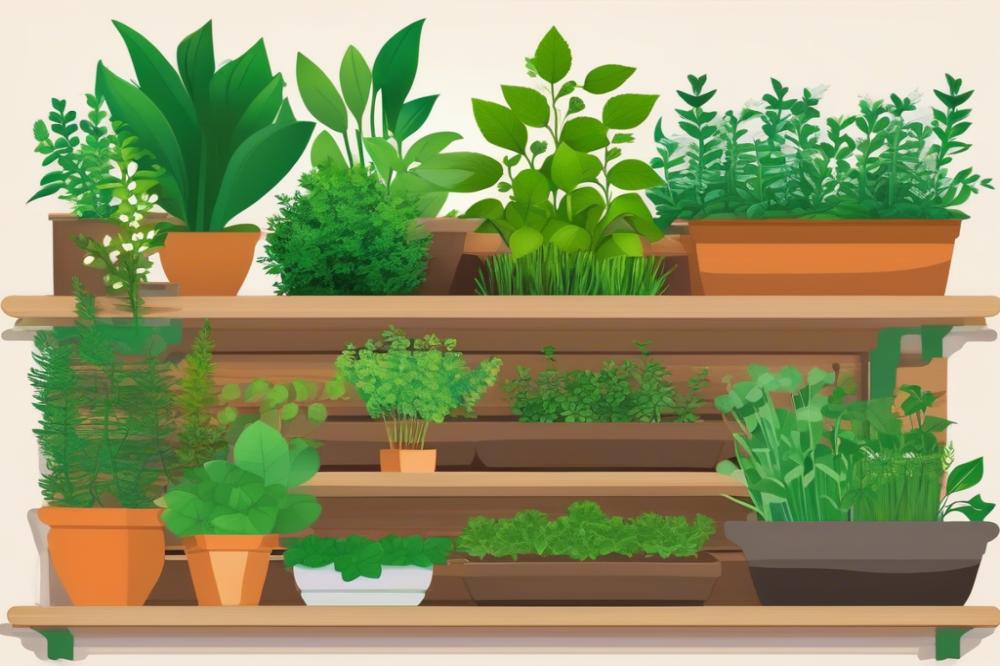The Role of herbs in sustainable gardening
sustainable gardening is an approach that promotes environmental health while providing food and beauty. This practice emphasizes methods such as permaculture and organic gardening, which help conserve resources and maintain the ecosystem. It is essential because it reduces waste, encourages biodiversity, and supports overall soil health, leading to healthier plant growth and a thriving habitat for wildlife.
One prominent aspect of sustainable gardening is the use of herb gardens. These gardens serve not only as a source of fresh flavors for culinary delights but also play a significant role in enhancing garden dynamics. Growing herbs can significantly support companion planting, where certain plants grow better together, helping to deter pests naturally. In this way, herbs contribute to effective pest control and improve the overall health of the garden.
Incorporating herbs into gardening practices offers numerous benefits. They promote biodiversity by attracting beneficial insects and pollinators. This lively ecosystem can lead to a more productive garden. Additionally, many herbs are native plants, which means they are well-suited to the local environment. Their presence can help conserve water and improve soil structure. Intercropping herbs with vegetables and flowers can create a vibrant landscape while maximizing space in an eco-friendly manner.
Furthermore, herbs often hold medicinal qualities, providing various herbal remedies that have been used for generations. Their value extends beyond the garden, offering many sustainable solutions for health and wellness. As gardeners seek to create a more harmonious relationship with nature, the integration of herbs stands out as a vital component of successful sustainable gardening practices.
The Importance of Herbs in Sustainable Gardening
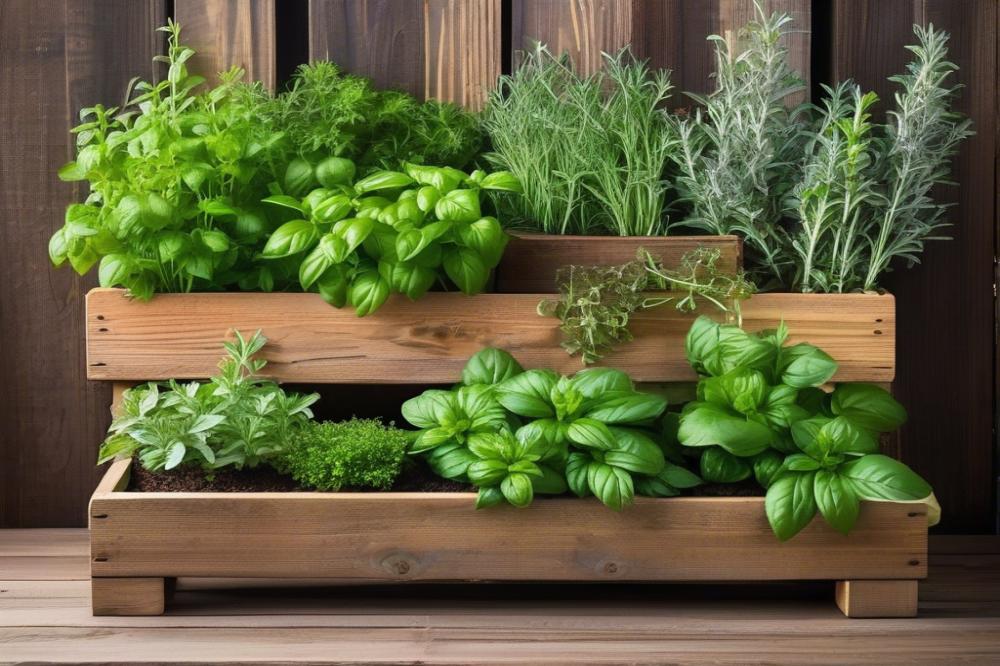

Herbs play a vital role in gardening systems, especially in promoting biodiversity. They attract a variety of pollinators, such as bees and butterflies, which are essential for the health of many plants. Incorporating native plants along with culinary herbs creates a rich habitat. This approach supports ecosystems by providing food and shelter for wildlife. When diverse plant species thrive together, they create balance in the ecosystem.
Soil health benefits immensely from growing herbs. These plants often have deep roots that reach nutrients unavailable to shallow-rooted crops. As herbs grow, they contribute organic matter that enriches the soil. This process is known as nutrient cycling. Decomposed herbs enhance soil structure, promoting aeration and water retention. Healthy soil fosters greater resilience against erosion and disease.
Pest control improves in gardens with herbs. Some herbs release natural compounds that deter harmful insects. Certain plants, such as basil and mint, can inhibit pests from devastating crops. Additionally, planting herbs alongside vegetables through methods like companion planting attracts beneficial insects. Ladybugs and lacewings, for example, prey on aphids and other pests. By intercropping herbs, gardeners can create a habitat that encourages these helpful species.
Supporting biodiversity, improving soil health, and enhancing pest control all highlight the significance of herbs in eco-friendly landscaping. Gardening becomes more sustainable when herbs are included. Even as a source of herbal remedies, these plants serve multiple purposes. Their benefits are not only functional; they enrich the gardening experience.
Herbs and permaculture Principles
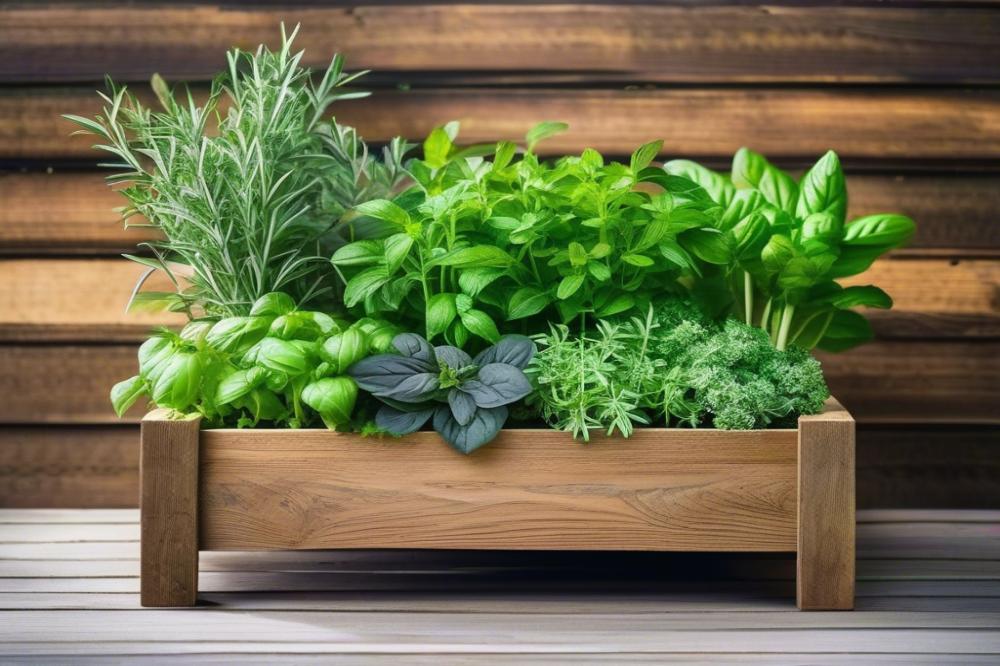

Permaculture design emphasizes harmony with nature. Herbs play a vital role in this approach. They contribute to biodiversity, which is essential for a flourishing ecosystem. This diversity helps create habitats for beneficial insects and microorganisms. When included in your garden plan, herbs can maximize both space and yield.
Intercropping with herbs allows for efficient use of limited gardening areas. By planting herbs alongside vegetables or other crops, you gain food from multiple sources. For example, basil grows well next to tomatoes. Not only do they thrive together, but basil also aids in enhancing the flavor of tomatoes. Other combinations can lead to improved soil health and increased overall productivity. The practice of intercropping can help prevent disease spread by breaking up monocultures.
Companion planting is another strategy that incorporates herbs into the garden. This technique involves planting herbs next to certain plants to improve growth and repel pests. For instance, marigolds deter harmful insects that might attack vegetable plants. This simple action encourages organic gardening practices. By using companion planting, you are actively working towards pest control without relying on harmful chemicals.
Native plants can enrich your herb garden. These are naturally adapted to local environments and support the local ecosystem. Creating an eco-friendly landscaping plan that includes herbs allows for sustainable practices while maximizing benefits. By cultivating a diverse range of plants, you promote resilience against pests and diseases.
Herbs also provide more than just culinary benefits. They can be used in herbal remedies, offering health advantages. Incorporating these plants into your garden helps create a space that is both productive and beneficial to your well-being. In permaculture, every element serves multiple functions. Think about how a mix of herbs can transform your gardening approach.
Herbs in Organic Gardening Practices
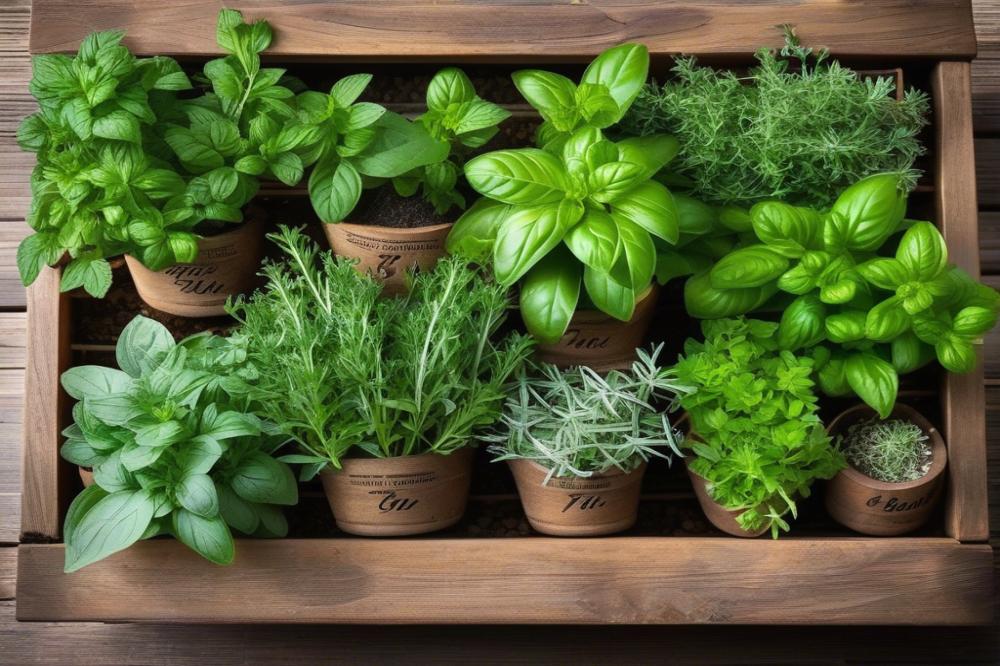

Herbs play an important role in organic gardening techniques. They fit well within eco-friendly landscaping methods. Many gardeners use them to create a more sustainable environment. These plants can act as natural pest deterrents, helping to keep unwanted insects at bay. Strong-smelling herbs like basil and rosemary can repel pests that might harm vegetables and flowers. Additionally, plants such as mint and lavender attract beneficial insects, which can help control pest populations naturally.
Creating a diverse planting scheme with herbs is also known as companion planting. This technique enhances biodiversity in gardens. By intercropping herbs with other plants, the overall health of the garden can improve. Certain herbs, such as dill and cilantro, can attract pollinators that are essential for fruit and vegetable productivity. Incorporating these plants not only boosts pest control but also promotes a balanced ecosystem.
Soil health benefits from the inclusion of herbs, too. As these plants grow, their roots can improve soil structure. This leads to better water retention and drainage. Many herbs are known for their ability to fix nitrogen in the soil, enriching it for other plants. Pairing herbs with native plants can further enhance fertility and resilience. They create a natural habitat that supports soil microorganisms vital for healthy growth.
Herbs are also valued for their potential as herbal remedies. Many people use them for their medicinal properties, further integrating gardening with health. Incorporating medicinal herbs into an organic garden can provide both culinary and therapeutic benefits. This practice fosters a deeper connection with nature and sustainability, embodying the principles of permaculture.
Each of these elements contributes to a thriving garden. By understanding the compatibility of herbs with organic gardening, gardeners can create more productive and resilient spaces. Choosing the right herbs serves multiple purposes: it enhances the garden’s aesthetics, supports pest control, and nurtures plant growth effectively.
Integrating Native Plants and Herbs
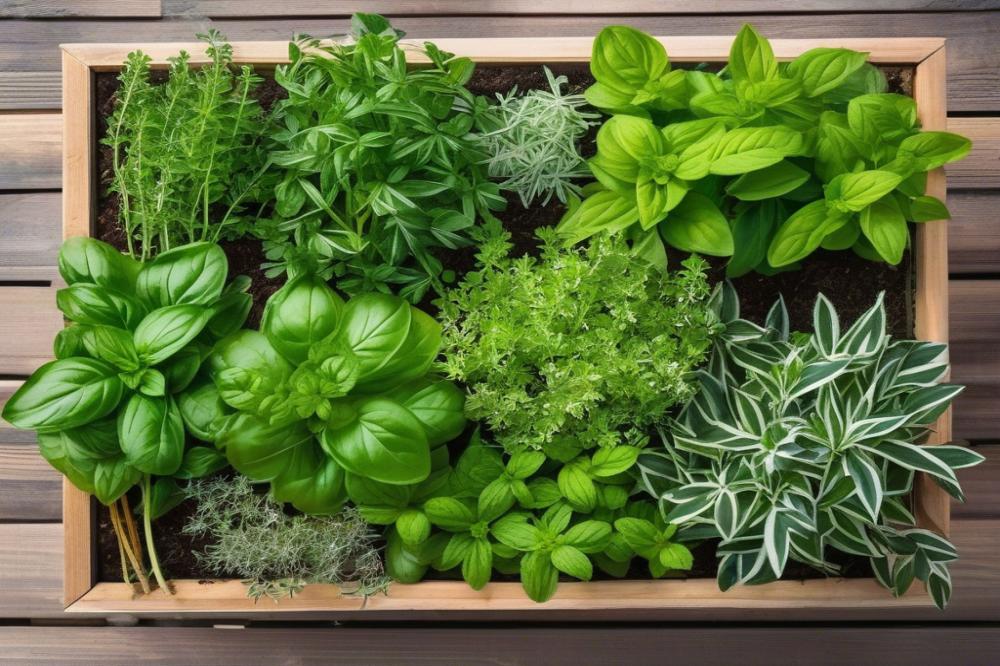

Using native herbs is a fantastic choice for eco-friendly landscaping. These plants have evolved to thrive in local environments. As a result, they require less water and maintenance compared to non-native species. Choosing them can help maintain soil health by enhancing the nutrient content of the ground. Additionally, native herbs often have better resistance to pests, reducing the need for chemical treatments.
Supporting local wildlife is another significant aspect of incorporating native plants into your garden. Birds, bees, and butterflies rely on these native species for food and habitat. By providing a varied selection of native herbs, gardeners can enhance biodiversity. This diverse plant life creates a balanced ecosystem, attracting beneficial insects while keeping harmful pests at bay.
Intercropping and companion planting can also be effectively implemented using native herbs. For instance, mixing native mint with vegetables can deter unwanted pests naturally. This method not only supports organic gardening but also aligns with permaculture principles, which focus on creating sustainable systems in harmony with nature.
Several native herbs make excellent additions to gardens. Wild bergamot, for example, attracts pollinators while offering tea and herbal remedies. Another option is the fragrant lemon balm, which can soothe stress and enhance flavor in dishes. Catnip is well-known not only for its effects on cats but also for its ability to repel harmful pests. Each of these plants contributes uniquely to local ecosystems, while also serving practical purposes for gardeners.
Herbs for Sustainable Living and Herbal Remedies
Herbs play an important role in promoting a sustainable lifestyle. They can be used in various ways to enhance daily living while benefiting the environment. For example, cooking with fresh herbs can reduce the need for processed ingredients. This practice encourages healthy eating and limits waste.
Many common herbs also offer notable health benefits. Chamomile is well-known for its calming properties and is often brewed into teas for relaxation. Ginger is another popular herb, famous for its ability to soothe digestive issues. People often use echinacea to support their immune systems and ward off colds. These herbal remedies are just a few examples of how herbs can contribute to well-being.
Growing herbs at home has distinct advantages. Cultivating your own plants minimizes reliance on commercial products laden with chemicals. Organic gardening practices, like permaculture, emphasize nurturing the soil. Rich soil health is essential for growing vibrant herbs, which benefit biodiversity. By practicing companion planting, gardeners can create harmonious relationships among plants that support each other as they grow.
Herbs also serve as natural pest control methods. Many varieties deter harmful insects, reducing the need for synthetic pesticides. Intercropping with herbs can help create balanced ecosystems that protect crops. Choosing native plants not only enhances the garden’s beauty but also supports local wildlife. Eco-friendly landscaping with herbs makes any space more vibrant and sustainable.
Incorporating herbs into everyday life is simple and rewarding. From fresh pesto made with basil to soothing lavender sachets, the applications are endless. Each herb has its own unique charm and set of benefits, making them invaluable in a sustainable lifestyle.
The Importance of Herbs in Sustainable Practices
Herbs are essential contributors to the health of our gardens and the environment. They offer many benefits that help create a more balanced ecosystem. By attracting beneficial insects, herbs help control pests without the need for harsh chemicals. This natural approach not only supports plant life but also promotes a thriving habitat for pollinators.
Incorporating herbs into your gardening practice is an excellent choice. A diverse range of herbs can enrich your soil, improve its structure, and increase its nutrients. Grow basil, mint, or rosemary alongside vegetables for a more productive garden. Each herb has a unique purpose. Some can even repel pests with their strong scents, creating a natural barrier.
Sustainability does not only mean caring for your plants but also looking after the Earth. Adopting practices like permaculture can enhance both your garden and the environment. Using organic gardening methods further minimizes harmful effects on nature. By planting herbs, you contribute to a healthier ecosystem while enjoying the flavors they bring to the table.
Encouraging others to include herbs in their gardening can create a ripple effect. Together, communities can build a deeper understanding of the environment’s needs. When gardens become more sustainable, they help reduce waste, conserve water, and lower carbon footprints. Every small effort counts, leading to bigger changes over time. The collective pursuit of healthier gardening methods will ultimately benefit future generations.

